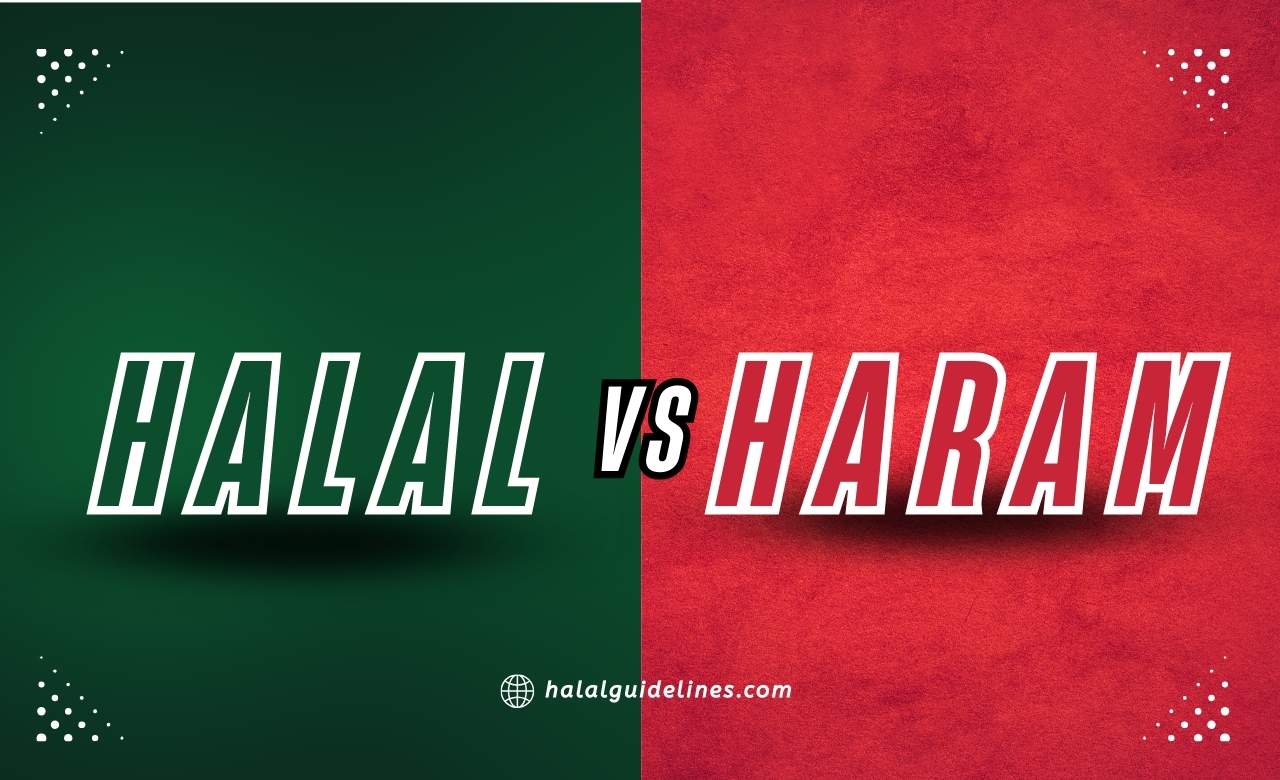What Do Halal & Haram Mean?
A complete guide to the definitions, principles, and US standards of permitted (Halal) and forbidden (Haram) lifestyles.

Defining Halal & Haram
Halal (Arabic: حلال) implies "permissible" or "lawful." In the context of Islam, it refers to any object or action that is permissible to use or engage in, according to Islamic law (Shariah). While broadly associated with food, Halal covers all aspects of life.
"O people, eat from whatever is on earth [that is] lawful and good..." — Quran 2:168
Haram (Arabic: حرام) implies "forbidden" or "unlawful." It represents the boundaries set to protect physical health, spiritual purity, and social well-being.
"...He has forbidden you only dead animals, and blood, and the flesh of swine..." — Quran 2:173
The Spectrum of Permissibility
Halal
The Permissible. Everything is considered Halal by default unless specifically prohibited by text.
Haram
The Forbidden. Specific items strictly disallowed, such as pork, alcohol, and carrion.
Mashbooh
The Doubtful. Items where status is unclear or ingredients are not verified.
Detailed Dietary Laws
| Category | Halal (Permitted) | Haram (Forbidden) |
|---|---|---|
| Meat & Poultry | Chicken, Beef, Lamb, Goat (Must be slaughtered via Dhabiha) | Pork (Swine), Carnivorous animals, Birds of prey |
| Seafood | Fish (scales), Shrimp (varies by school) | Toxic aquatic animals |
| Dairy & Sweets | Milk, Yogurt, Vegetable rennet cheese, Halal gummies | Animal rennet (pepsin), Rum cakes, Pork gelatin |
| Beverages | Water, Juice, Milk, Tea, Coffee | Alcohol (Ethanol), Intoxicants, Wines |
| Ingredients | Vegetable enzymes, Plant-based gelatin | Pork gelatin, Lard, Vanilla Extract (if alcohol-based) |
The Science of Ingredients: E-Numbers & Additives
Understanding E-Numbers
Codes like E120 (Carmine) come from insects, and E471 can be derived from pork fat unless labeled "vegetable origin."
Gelatin: Beef vs. Porcine
Porcine gelatin is always Haram. Bovine (beef) gelatin is Halal only if the animal was slaughtered according to Islamic rites.
Alcohol in Cooking
Added alcohol (like wine in sauces) is not permitted. However, trace amounts of naturally occurring ethanol (in ripe fruit) are permissible.
Confused by E-Codes?
Use our free tool to instantly check if an ingredient is Halal.
Launch E-Code CheckerMajor Haram Prohibitions: Understanding the 'Why'
To fully understand Halal, one must understand Haram. These prohibitions are rooted in spiritual purity, physical health, and ethical conduct.
Below is a detailed breakdown of the major forbidden categories:
Pork (Swine)
Strictly prohibited in the Quran (2:173). Includes lard, gelatin, and porcine enzymes. Pigs are often carriers of parasites and diseases.
Intoxicants (Khamr)
Anything that clouds the mind is Haram, including alcohol and narcotics. Even small amounts in cooking are generally forbidden.
Carrion & Blood
Animals that die before slaughter and flowing blood are forbidden due to hygiene risks and bacterial growth.
The Slaughter Method: Dhabiha
For land animals to be Halal, they must be harvested via Dhabiha to maximize animal welfare and hygiene.
- 1Healthy Animal: Sick animals cannot be slaughtered.
- 2Sharp Instrument: Knife must be razor-sharp for a swift, painless incision.
- 3Invocation: "Bismillah" must be recited.
- 4Drainage: Blood must be fully drained.
Animal Welfare Rights
Islam emphasizes humane treatment. Animals must be fed, watered, and calm. Sharpening a knife in front of an animal is forbidden.
Science of Blood Drainage
Draining blood prevents bacteria growth and removes toxins, keeping meat fresher and healthier.
Halal Beyond the Plate

Cosmetics
Free from pork collagen and alcohol. Must be cruelty-free.

Islamic Finance
Prohibits interest (Riba) and investing in harmful industries.

Modest Fashion
Clothing that covers the 'awrah' while embracing modern style.

Halal Tourism
Family-friendly travel with alcohol-free hotels and privacy.
Common Questions (People Also Ask)
Is meat found in standard US grocery stores (like Walmart or Costco) considered Halal?
Are major US Fast Food chains (McDonald's, KFC, Popeyes) Halal?
How do I know if Gelatin in marshmallows or gummies is Halal?
Is Sushi Halal to eat if it contains Mirin (Rice Wine)?
Can Muslims consume Kosher Certified food? (Halal vs Kosher)
Are all Vegan and Plant-Based foods automatically Halal?
What is the difference between Zabiha and Machine-Slaughtered Halal?
Which common E-Numbers (Food Additives) are always Haram?
Use our E-Code Checker Tool to verify any code instantly.
Need Halal Certification for Your Business?
We specialize in helping businesses obtain Halal certification efficiently. Unlock the global market today.
Start Certification Process